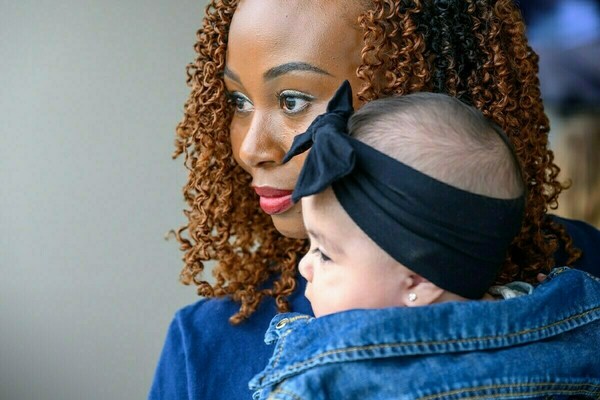Notre Dame graduate students win grants for time on Keck Telescope
Two University of Notre Dame graduate students — Pranav Nalamwar and Alex Thomas — have each won a Keck grant, which includes access to the W. M. Keck Observatory’s Keck Telescope for two nights.
The Keck Observatory telescopes, located in Waimea, Hawaii, are among the most scientifically productive instruments in the world, making it a competitive place to conduct research. Notre Dame already buys observation time for researchers here, but this grant provides additional, independent access beyond that.
Nalamwar is in his fourth year of graduate school within the Department of Physics and Astronomy, and he won his grant from NOIRLab. His advisor, associate professor Evan Kirby, describes how Nalamwar’s work “straddles the boundary between nuclear physics theory and observational astrophysics.” Nalamwar makes predictions about the basic building blocks of matter and uses telescopes to see if those predictions hold true.
“We have been focusing on how the heaviest elements in the universe, from the neodymium in magnets to the gold in your earrings, are made in the universe,” says Nalamwar. Time on the Keck telescope will allow them to find where and how these elements are created, looking to dense clusters of stars, known as globular clusters, for the answers.
Elements like gold and uranium are found in far-away stellar systems and require large and powerful telescopes like the Keck’s to be found. Telescopes are like “laboratories for astronomers,” says Kirby, “Keck Observatory is the premier astronomical laboratory, so I am always thrilled to have the privilege to observe there.”
Nalamwar acknowledges that, unlike a few centuries ago, science nowadays requires large collaboration and teamwork.
“I would have never received such amazing research experiences or prestigious telescope time without my advisor (Kirby), along with several others in the physics program for their continuous input,” he says.
Thomas is a fifth year graduate student also in the Department of Physics and Astronomy, and he won his grant from NASA. Prior research using the Kepler Space Telescope revealed thousands of exoplanets, often in evenly spaced systems, but the telescope’s limitations left some planets undetected. His thesis’ goal is to make a program to help find those missing planets and learn more about how planets form and are spread out.
His advisor, assistant professor Lauren Weiss, explains how time with the Keck telescope will allow Thomas to search for one of these “missing” planets. “It will tell us if these apparent gaps are really devoid of planets, and what those gaps (or the planets hiding in them) mean for our understanding of how planets like Earth form,” she says.
Thomas is deeply grateful for his advisor, research group, mentors, and friends for all of their support, guidance, and advice leading to this. “Last, but certainly not least,” he says, “I want to thank my mom for her unwavering love and all of the sacrifices she has made to help me get to where I am.”
For Thomas and Nalamwar, earning this time on the telescope will have an immense impact on their respective research and will help to further our understanding of the universe in which we are a part of.
Originally published by at science.nd.edu on December 17, 2024.
Latest Research
- Fighting for maternal healthThe United States has the highest maternal mortality rate of developed nations. An innovative postpartum care model from Notre Dame can save mothers around the globe. Read the story Originally…
- NSF Cyber SMART’s fall meeting shapes fifth year of project, legacy and future plans, and adds new memberThe U.S. National Science Foundation (NSF) Cyber SMART center gathered for its fall meeting on the University of Notre Dame campus this September. The meeting served as a checkpoint with progress reports and new projects from research leads and students…
- Slavic and Eurasian studies professor wins Humboldt fellowship to research how Russia’s religious past shapes its presentWhen Russia invaded Ukraine on Feb. 24, 2022, Sean Griffin realized his second book needed a new title. Griffin, an associate professor in the University of Notre Dame’s Department of…
- Notre Dame’s R.I.S.E. AI Conference builds interdisciplinary collaboration to inform human-centered artificial intelligenceAs artificial intelligence (AI) transforms nearly every sector of society — from healthcare and education to governance and global development — a critical question emerges: How can we conscientiously design and deploy these powerful technologies to positively impact society? This…
- University of Notre Dame joins the Global Coalition of Ukrainian StudiesThe University of Notre Dame has joined the Global Coalition of Ukrainian Studies after signing a Memorandum of Cooperation (MOC), formalized on September 24, 2025, at the Ukrainian Institute of America in New York City. Notre Dame joined four other American…
- The University of Notre Dame’s Mendoza College of Business and Industry Labs team up to inspire national security manufacturing competitiveness in the regionThe South Bend - Elkhart Region is full of manufacturing companies that are poised to grow, and Executive Master of Business Administration (EMBA) and Master of Business Administration (MBA) students at the University of Notre Dame are finding innovative ways to contribute to that growth. Earlier…













